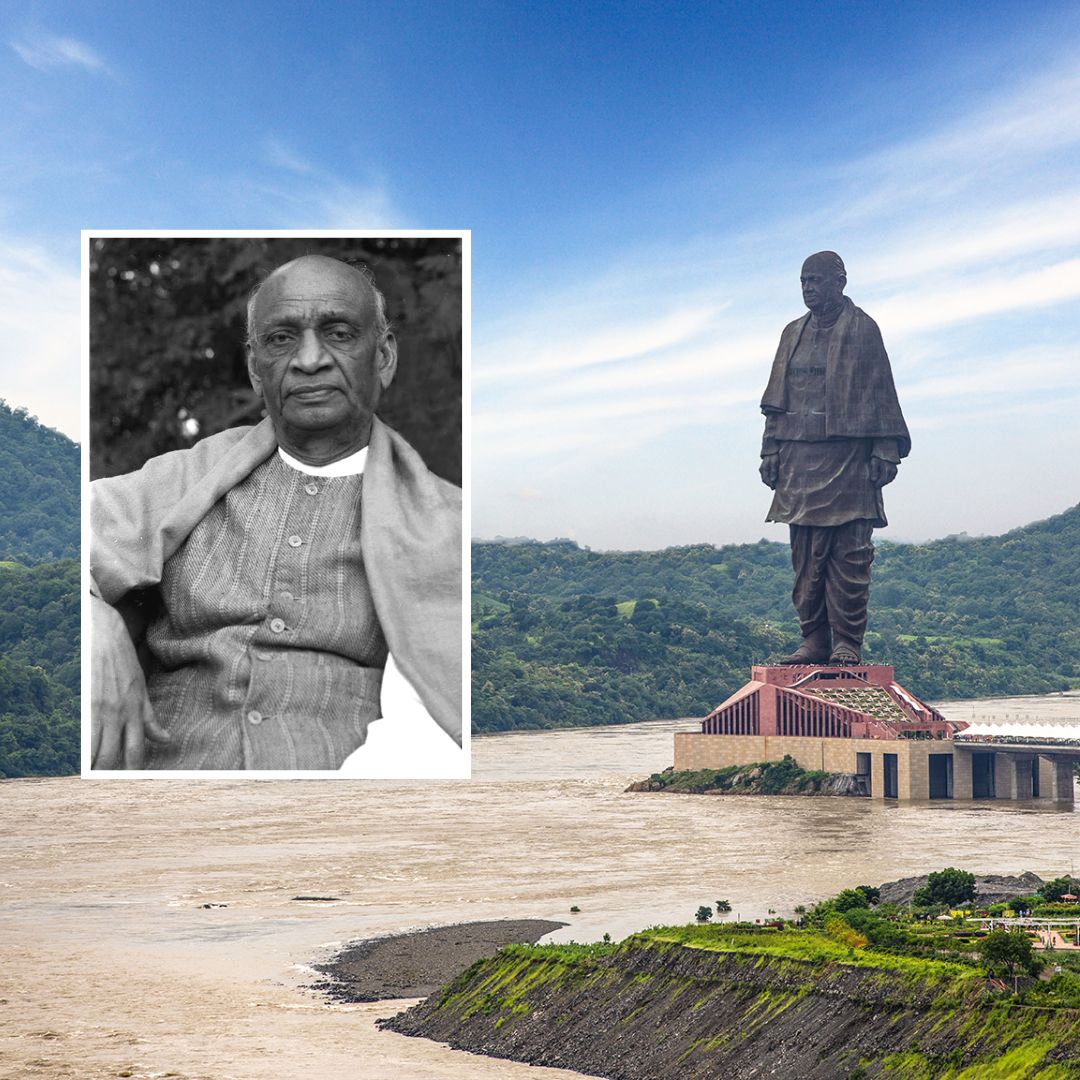
Image Credit- Gujarat Tourism, Wikipedia
Sardar Patel: Remembering 'Iron Man Of India' Who United Different Princely States Into A Nation
Writer: Simran Jeet
She is a a dedicated and an optimistic person who believes in learning from experience.
India, 15 Aug 2022 9:49 AM GMT
Editor : Shiva Chaudhary |
A post-graduate in Journalism and Mass Communication with relevant skills, specialising in content editing & writing. I believe in the precise dissemination of information based on facts to the public.
Creatives : Shiva Chaudhary
A post-graduate in Journalism and Mass Communication with relevant skills, specialising in content editing & writing. I believe in the precise dissemination of information based on facts to the public.
Patel was also known as the "unifier and the principal architect of modern India". He used his skills to consolidate India, which lay in a fragmented and fluid state at the time of independence in 1947.
Vallabhbhai Jhaverbhai Patel, commonly known as Sardar Patel, was a lawyer, influential political leader, barrister and statesman who served as the first Deputy Prime Minister and Home Minister of India from 1947 to 1950.
Patel was also known as the "unifier and the principal architect of modern India". He used his skills to consolidate India, which lay in a fragmented and fluid state at the time of independence in 1947. The 565 self-governing princely states under direct British rule had been released from British suzerainty under his leadership by the Indian Independence Act 1947.
With his dire commitment to national integration, Patel persuaded almost every princely state to accede to India, earning him the nickname "Iron Man of India". He is indeed the epitome of national unity and integrity.
Participation In Several Movements Against Britishers
Vallabhbhai Patel was born on October 31, 1875, in Nadiad city of Kheda district, Gujarat. He was one of Mahatma Gandhi's earliest political lieutenants. He organised peasants from Kheda, Borsad, and Bardoli in Gujarat in non-violent civil disobedience against the British Raj, thus becoming one of the most influential leaders in Gujarat.
While promoting the Quit India movement, he was appointed as the 49th President of the Indian National Congress.
Patel played a fundamental role in organising relief efforts for refugees fleeing to Punjab and Delhi from Pakistan while working positively to restore peace.
He is famously remembered as the "patron saint of India's civil servants" for establishing the modern All India Services system.
Patel supported Gandhi's Non-cooperation movement by touring the country to recruit more than 300,000 members and raise over Rs 1.5 million in funds. Helping organise bonfires in Ahmedabad, where British goods were burned, Patel threw in all his English-style clothes. He supported Gandhi's controversial suspension of the movement in the wake of the infamous Chauri Chaura incident.
In Gujarat, he worked extensively against alcoholism, untouchability, caste discrimination, as well as for the empowerment of women, according to Wikipedia.
Contribution To Bardoli Satyagraha
In Congress, Gandhi was a committed supporter of Patel's Swarajist policy. Patel was elected as Ahmedabad's municipal President in 1922, 1924, and 1927.
After serving his municipal duties, Patel returned to the independence struggle in Ahmedabad to participate in Bardoli satyagraha in 1928, when Bardoli in Gujarat suffered from a serious double predicament of a famine and a steep tax hike 1928.
His role in the Bardoli Satyagraha elevated him to a new pinnacle of national glory, earning him the fond epithet of 'Sardar', which he continues to be remembered and revered. This peasant movement became a subject of great nationwide discussion and demonstrated Sardar's organisational capacity and enthusiasm for tireless action.
To celebrate Sardar Vallabhai Patel, October 31 has been observed as National Unity Day since 2014. Prime Minister Narendra Modi dedicated the world's tallest statue – the 'Statue of Unity', to the nation in honour and reverence of Patel. The figure stands tall at 182 metres against the backdrop of the dramatic Satpura and Vindhyachal hills in Kevadia, Gujarat.
Also Read: Scotland Leads By Example, Became World's First To Ensure Universal Access To Free Period Products
 All section
All section













